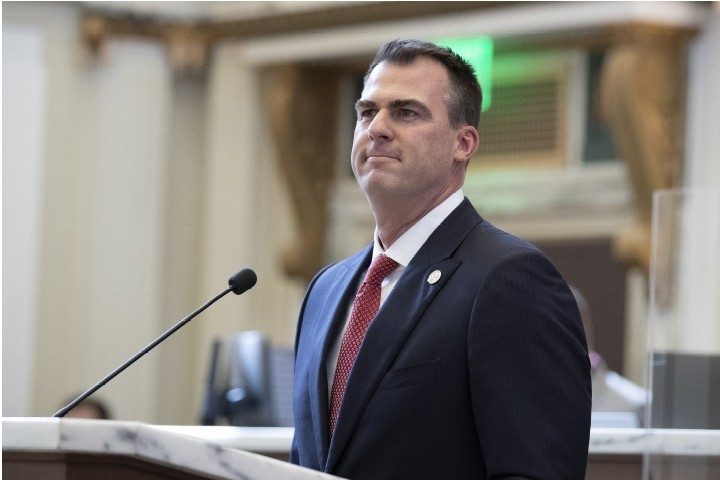
Charging that Executive Order 13990 issued by President Biden “is in contravention of Article II Section 2 and the 10th Amendment of the United States Constitution,” Oklahoma Governor Kevin Stitt issued his own executive order this week to, in effect, nullify it.
Governor Stitt is a Republican, elected in 2018. His order is challenging Biden’s order as “adverse to energy producers throughout the United States and Oklahoma. His decision terminates the Keystone XL pipeline and claims to rejoin the Paris Climate Accord while failing to seek ratification by the U.S. Senate.” According to the U.S. Constitution, a presidential agreement with the government of another nation is not law until at least two-thirds of the Senate ratifies it. President Barack Obama placed the United States in the Paris deal without a treaty vote. This was reversed by President Trump, and now President Biden has put the United States back into it.
“These policies [of the Paris Accord] allow the world’s powers to continue CO2 emissions,” Stitt wrote, “causing the U.S. to harm its own economy, threatening millions of jobs in states like Oklahoma, while making no meaningful difference in world’s emissions. Special Envoy for Climate, John Kerry, admitted as much only days ago.”
As Stitt said in his executive order sent to “every state agency,” Oklahoma “has always embraced its role as a national and international leader in the production of oil and gas and other forms of energy.” The Oklahoma oil industry began even before statehood, producing such oil companies as Phillips and Conoco, and oil-service giant Halliburton. By the 1920s, Oklahoma was perhaps the leading oil state in the country. And, as Stitt noted, “That tradition continues today.”
Stitt emphasized the importance of the oil and gas industry. “Much of the global growth, and indeed America’s growth can be traced to the energy innovations originating from Oklahoma.” He added, “Since 2005, Oklahoma has reduced carbon dioxide emissions from the power sector by more than 34 percent, while the national average is 12 percent, all the while producing the most affordable power in the country across all sectors for eight of the last 10 quarters.”
Additionally, “The [energy] industry pays billions of dollars of taxes to state and local governments assisting in providing schools, services and infrastructure to citizens throughout the state.”
All of these positive outcomes for both Oklahoma and the United States are threatened by what Stitt contends is an unconstitutional seizure of power by Biden, and is “preventing Oklahoma from exercising its ability to properly determine how best to steward and develop its natural resources.”
“Now, therefore, I J. Kevin Stitt, governor of Oklahoma, by virtue of the power and authority vested in me by the Constitution and laws of the State of Oklahoma, hereby direct every state agency to utilize all civil methods and lawful powers to protect its 10th Amendment powers and challenge any actions by the federal government that would seek to diminish or destroy Oklahoma’s ability to encourage job growth and the responsible development of our natural resources within the energy industry.”
Nullification is the recognition that the states and their citizens created the Union and that the Union should answer to them. The concept was first developed by Thomas Jefferson and James Madison as a tool for the states to act when the federal government refuses to abide by the U.S. Constitution. It has been used effectively to thwart many actions of the federal government, such as when Michigan and Wisconsin refused to cooperate with the Fugitive Slave Act in the 1850s. Today, states have passed laws to nullify federal laws against guns within their state borders, and in Michigan, conservatives got a law enacted that kept state officials from helping federal officers use indefinite detention under provisions of the National Defense Authorization Act.
Writing for the Mises Institute, Thomas Woods explained nullification: “Nullification is the Jeffersonian idea that the states of the American Union must judge the constitutionality of the acts of their agent, the federal government, since no impartial arbiter between them exists. When the federal government exercises a particularly dangerous power not delegated to it, the states must refuse to allow its enforcement within their borders.”
Governors, like presidents, cannot legally create law with an executive order, but they can issue orders to persons in the executive branch to refuse to cooperate with federal officials in every way they can to frustrate the implementation of unconstitutional usurpations of state authority, as has been done by President Biden with his executive orders.
Hopefully, Governor Stitt’s bold action in challenging President Biden will encourage other governors in other states to stand up to the unlawful actions Biden has taken since assuming office last month.




